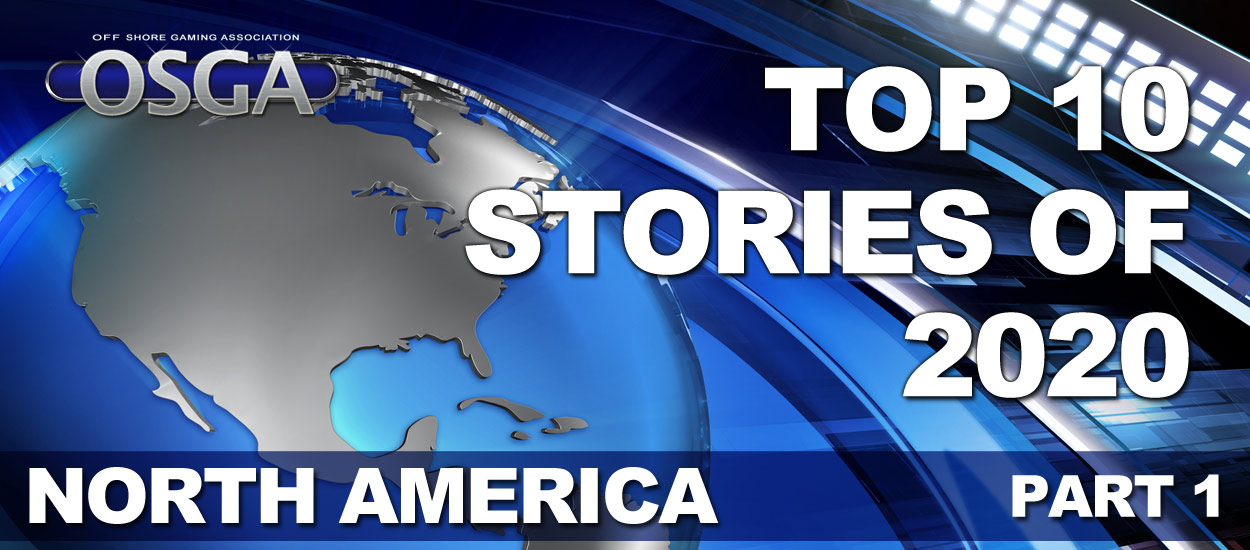2020 was without question the most frustrating year for gambling in recent memory. When the year started it appeared that the industry was set for huge advances, but that all came crashing down in March, thanks to COVID-19. Instead the industry went through one of the most difficult years, if not the most difficult year it ever faced. Instead of talking about growth and advancements as a result of more states passing laws to legalize sports wagering, the most talked about topic was simply survival. Thus, the common theme in most of the top stories of 2020 will be related to the Coronavirus, but fortunately, it wasn't all bad.
I'll start out with the 10th topic and move forward in this two part series to the top online gambling story in North America.
10. Unfairness of Wire Act for tribes comes to light
In 1988 the U.S. government created a law that allowed the states and tribes to enter a business agreement enabling them to both profit from gambling. The law known as the Indian Gaming Regulatory Act (IGRA) permitted tribes to offer gambling if they came to a compact with the state to split revenue. Since its inception, the IGRA has been wrought with controversy. Many tribes opposed it because they believe as an autonomous nation they shouldn't have to give the states anything from gambling revenue generated on their lands, while many states believe the law pressures states to enter into agreements with tribes that may not be in the best interest of states. Consequently, each state treats tribes differently and often it has to do with whether those states want to offer gambling as a commercial entity. In states where there is only commercial gambling like New Jersey, Delaware and Nevada, the IGRA is not a concern. But in states where tribes expect the right to run all casino gambling, including New York, California, Florida and Colorado, along with dozens of smaller states, it has caused quite a bit of consternation.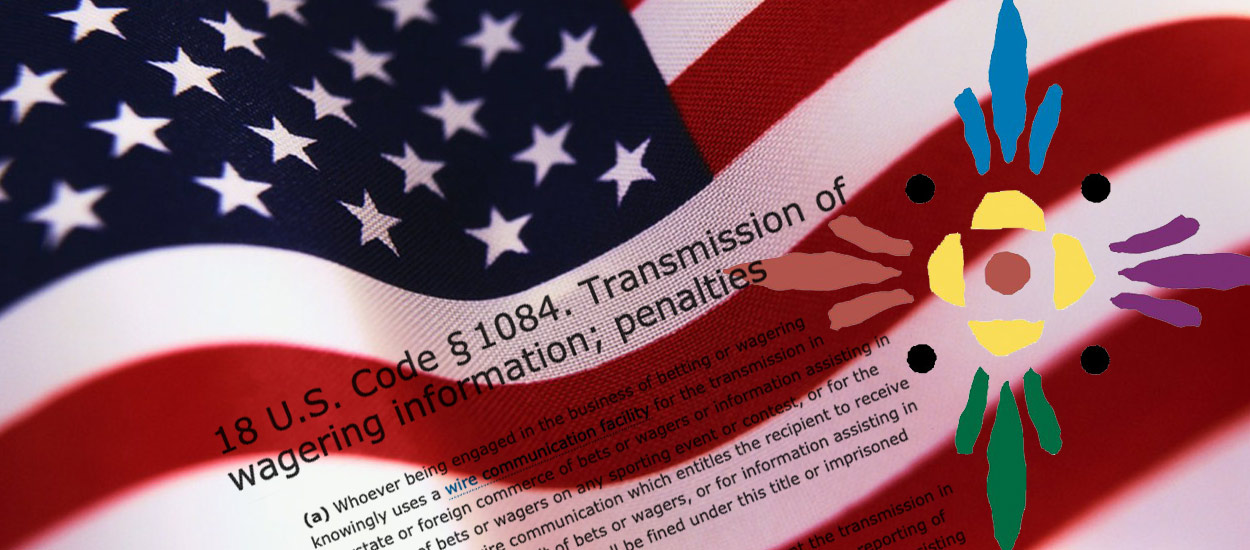 Florida has been more or less fighting with the tribes over compacts in the state for almost three decades and it almost came to a head 3 years ago when the Seminole Indians demanded that governor Rick Scott give them exclusive rights over slot machines in the state. The compact extension was eventually reached, after the tribes agreed to allow a commercial casino to be built in Miami, and the tribes were allowed to control all slot machines outside of Miami-Dade in exchange for the continuation of compact terms. In California, a plethora of different tribes has caused confusion among not only tribes and governments, but also tribes versus tribes where some tribes want to include PokerStars, and some don't. And many tribes don't want any gambling on tribal lands at all. Meanwhile in states like West Virginia tribes are effectively treated as equals in everything regarding gambling. And some states are even discussing the possibility of allowing tribes to offer gambling across state lines since they are not necessarily bound by set boundaries.
Florida has been more or less fighting with the tribes over compacts in the state for almost three decades and it almost came to a head 3 years ago when the Seminole Indians demanded that governor Rick Scott give them exclusive rights over slot machines in the state. The compact extension was eventually reached, after the tribes agreed to allow a commercial casino to be built in Miami, and the tribes were allowed to control all slot machines outside of Miami-Dade in exchange for the continuation of compact terms. In California, a plethora of different tribes has caused confusion among not only tribes and governments, but also tribes versus tribes where some tribes want to include PokerStars, and some don't. And many tribes don't want any gambling on tribal lands at all. Meanwhile in states like West Virginia tribes are effectively treated as equals in everything regarding gambling. And some states are even discussing the possibility of allowing tribes to offer gambling across state lines since they are not necessarily bound by set boundaries.
But the unfairness of the compacts came to light in 2020 when states that allowed for online gambling treated tribes differently. In Michigan, the state told the tribes that they could offer online gambling anywhere in the state, if they paid taxes like commercial casinos do. So, the small northern reserve in Bay Mills, Michigan signed a partnership with DraftKings which allows the reserve to take sports bets and offer online casino wagering when legalized anywhere in the state. Oklahoma, Tennessee, New York and Iowa, however, all told the tribes to stick to the exact terms of the compact meaning that they could only offer sports betting on their reserves if the compact stated so, and under no circumstances could they offer remote betting. The state governor of Oklahoma also indicated that if online gambling is legalized, the tribes would not be permitted to ever avail of it in any way, as it is not in the compact.
Not surprisingly the inconsistent treatment of tribes regarding the Wire Act, along with the unfair treatment under the IGRA, has caused many tribal groups to demand that the Wire Act and possibly the IGRA be rewritten. A bill in New York titled "Removing Federal Barriers to Offering of Mobile Sports Wagers on Indians Land Act," was written in 2019 by a New York legislator and in 2020 the Seneca Indians along with other New York tribes have stated that the pandemic demands this law be passed asap. Most commercial operators, however, do not want the bill to passed and if anything, want tribal gambling to be curtailed more. Many tribal groups are on record demanding that the states start working more closely with the tribes to give them equal access to the state betting market and the pandemic has only gone to show the inequity of treatment. Consequently, many tribes are gathering to challenge both the IGRA and the Wire Act in the courts and force the states to treat commercial operators and tribal gambling operators equally.
Whether it will work is uncertain, but many of these issues would not have come to light if not for the COVID-19 pandemic of 2020.
9. Revamp of the WSOP and confusion over the real 2020 champion
Each year the World Series of Poker is played in Las Vegas from May to July, but with COVID-19 shutting down any in person gatherings, the World Series of Poker went online. A series of 85 online tournaments were played with 31 on WSOP.com and 54 on GGPoker.com. American players played on WSOP.com and the rest of the world played on GG Poker. A $5,000 main event tournament took place on GGPoker and attracted 5,802 players, creating a prize pool of $27.67 million dollars. The event was won by Bulgarian player Stoyan Madanzhiev and he was presented a bracelet indicating he was the 2020 World Champion. WSOP, however, later announced that his win wasn't the real WSOP main event and instead they were holding a different tournament that would determine the "real" 2020 champion. The tournament entailed two parts. The first part was an international tournament that would be played online at GG Poker, where the 9 finalists would meet and play in person at a casino in the Czech Republic. And the second part was a tournament for Americans only played online at WSOP.com, and the final 9 survivors would meet in person and play at the Rio Hotel in Las Vegas on December 28th. The winner of the Czech tournament which turned out to be Damian Salas will meet the yet undetermined American winner on December 30th at the Rio in a heads-up tournament to determine the official 2020 WSOP champion. The December 28th and December 30th tournaments will be aired tape delayed on ESPN.
WSOP, however, later announced that his win wasn't the real WSOP main event and instead they were holding a different tournament that would determine the "real" 2020 champion. The tournament entailed two parts. The first part was an international tournament that would be played online at GG Poker, where the 9 finalists would meet and play in person at a casino in the Czech Republic. And the second part was a tournament for Americans only played online at WSOP.com, and the final 9 survivors would meet in person and play at the Rio Hotel in Las Vegas on December 28th. The winner of the Czech tournament which turned out to be Damian Salas will meet the yet undetermined American winner on December 30th at the Rio in a heads-up tournament to determine the official 2020 WSOP champion. The December 28th and December 30th tournaments will be aired tape delayed on ESPN.
The tournament format has caused confusion. Poker purists refuse to accept a champion that involved any online play, while online players argue that Stoyan Madanzhiev is already the world champion and this later tournament is just nonsense to appease ESPN. They also point to the fact that less than 1,400 people signed up for the hybrid tournament and the overall prize pool was less than a quarter of the online event. Madanzhiev also claims he is the rightful winner of the 2020 WSOP main event.
Regardless, both events now raise the question of whether online poker should be a part of the World Series of Poker going forward. The interest by so many people who would never have signed up for an in-person $10k tournament and the reduction of costs in hosting an event online seems to be reasonable grounds for the hybrid model. It could also help spur online poker in the United States, which thus far has not achieved the same popularity as the rest of the world.
8. Increased interest in horse racing due to the coronavirus and the change in the Triple Crown schedule
When COVID-19 struck, most sports had to shut down. The only sport left standing was horse racing. Many racetracks did shut down while they dealt with outbreaks and imposing safety rules, including disallowing spectators, but for the most part, they all thrived once racing returned. Bettors wanted something to wager on and horse racing provided that option. In 2020 to date, overall wagering on U.S. horse racing was down slightly due to the decrease in racing days as a result of the closures, but betting has been increasing each month. In the summer overall wagering in the United States was up by almost 40% over 2019. Racetracks 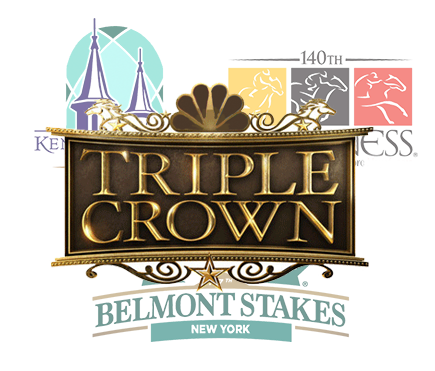 which seemed to be in trouble got a huge boost, thanks to the renewed interest in the sport and when most racetracks were closed, two virtually unknown racetracks in Oklahoma and Nebraska became the talk of the gambling world. Will Rogers Downs, located in Claremore, Oklahoma and Fonner Park, located in Grand Island, Nebraska, were receiving all the bets. These two tiny tracks saw wagering on their races up almost 600% until other racetracks reopened, and offshore and UK casinos, which never took a bet from Fonner Park in their history, started taking bets from this track every day.
which seemed to be in trouble got a huge boost, thanks to the renewed interest in the sport and when most racetracks were closed, two virtually unknown racetracks in Oklahoma and Nebraska became the talk of the gambling world. Will Rogers Downs, located in Claremore, Oklahoma and Fonner Park, located in Grand Island, Nebraska, were receiving all the bets. These two tiny tracks saw wagering on their races up almost 600% until other racetracks reopened, and offshore and UK casinos, which never took a bet from Fonner Park in their history, started taking bets from this track every day.
2020 also saw a change in the racing calendar, including the Triple Crown races after Churchill Downs was forced to postpone the Kentucky Derby due to the pandemic. For the first time ever, the first race of the Triple Crown became the Belmont Stakes, which was won by Tiz the Law on June 20th. The Kentucky Derby became the second leg and was run on September 5th and won by Authentic, after he led wire to wire to defeat Tiz the Law by over a length. And the last leg was the Preakness, on October 3rd and was won by the filly Swiss Skydiver, who held off Authentic by a head. Authentic got the last laugh, however in the Breeders Cup Classic run in November when he beat Improbable by over two lengths and probably sealed the 2020 horse of the year honors. Like other races this year, the Breeders Cup also saw a large increase in handle, even though fans were not allowed to attend the races at Keeneland.
7. Mail-in voting leads to confusion over election payouts and creates massive losses for bookies
The defeat by Hillary Clinton to Donald Trump in 2016 and the defeat by John Kerry to George W Bush in 2004 were both shocking results that led to losses by many bookies who took wagers on the elections. In both cases, polls leading up to election day had the Democrat candidate well ahead, and in each case exit polls taken during the day showed that lead growing. Consequently, Clinton and Kerry were as much as 1/10 favorites to win the election at some point on election day. In each case, however, the polls proved to be wrong, thanks to huge turnouts for both Bush and Trump in Florida and other non-traditional Republican states, while many Democrat voters simply stayed home. This allowed the Republicans to win the nomination and bettors who refused to believe the polls ended up being big winners in each of those elections.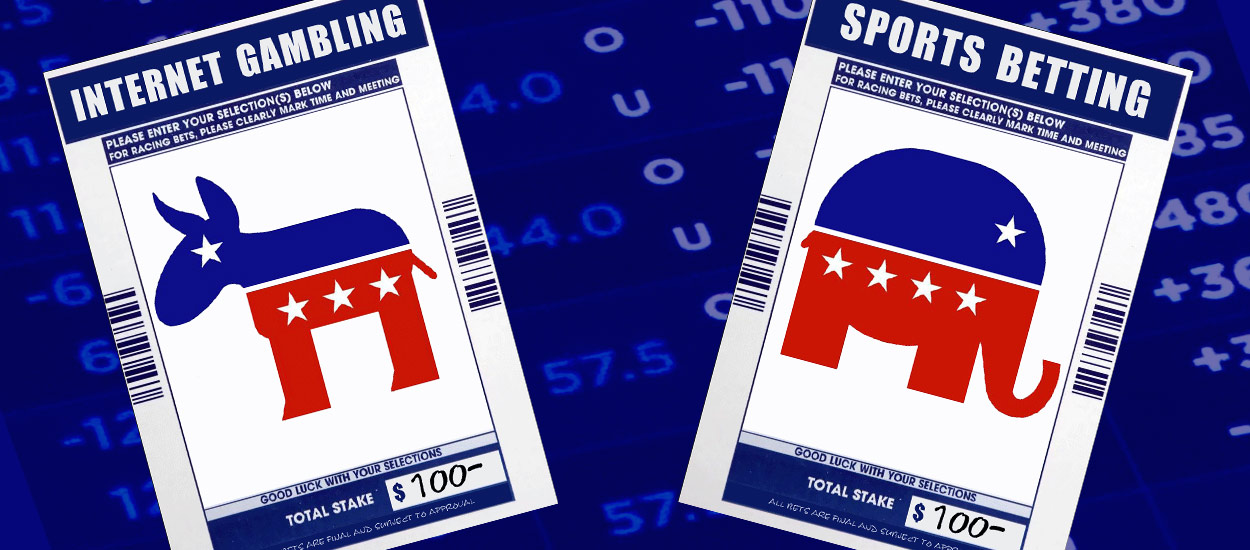 2020 also produced shocking election results for sportsbooks and bettors, but for a completely different reason. Every poll showed Joe Biden well ahead of Donald Trump throughout the year, with most experts attributing the handling of COVID-19 to those poll numbers. But each candidate also took a different approach in talking to their supporters. Donald Trump, who had denied the severity of the Coronavirus, asked his supporters to vote in person while Joe Biden, who was worried about the dangers of in-person betting asked his supporters to vote by mail or to vote in advance.
2020 also produced shocking election results for sportsbooks and bettors, but for a completely different reason. Every poll showed Joe Biden well ahead of Donald Trump throughout the year, with most experts attributing the handling of COVID-19 to those poll numbers. But each candidate also took a different approach in talking to their supporters. Donald Trump, who had denied the severity of the Coronavirus, asked his supporters to vote in person while Joe Biden, who was worried about the dangers of in-person betting asked his supporters to vote by mail or to vote in advance.
On Wednesday November 4th, the day after the election, Trump woke up to huge leads in every swing state, including an 11% lead in Pennsylvania, about a point and a half in Michigan, 2% in Wisconsin and 6% in Georgia. But the news agencies led by CNN said that the election wasn’t over and pointed out that the swing states were all showing millions of votes outstanding. Michigan was only at 83% reported with Detroit and its suburbs still mostly outstanding. Pennsylvania was showing only 75% reported with the major metropolitan areas uncounted and Georgia was almost 90% counted, but the Atlanta metro still had many polls outstanding. Moreover, Pennsylvania and Michigan laws required that mail-in votes be counted after the in-person votes and it was well known that mail-in votes would be predominantly Democrat. Donald Trump declared victory because of his lead, but Biden and the states said that all votes had to be counted first and Biden believed he would still win.
Sportsbooks were also very confused. Odds fluctuated constantly as a result of the counted votes on election day and some books had Donald Trump as much as a 1/8 favorite after votes kept rolling in for Trump. Smart bettors, however, realized that the vote would change and the states would be much closer, but not even the staunchest Democrat voters could guess how much. It took almost a week for the votes to be fully counted and each day it became clearer that Biden had become the favorite. 1/8 odds for Trump at sportsbooks like William Hill moved to 1/3 favorite for Joe Biden and scenes were common in front of voting stations where Trump was leading with Republicans demanding that states stop counting legal mail in votes. Arizona, on the other hand, where Trump was losing but gaining ground from mail in votes had Republican voters (and no doubt gamblers), demanding that votes keep being counted.
In the end Joe Biden did win the election including a shocking win in Georgia, the first time since Bill Clinton that a Democrat won that state. One book had Biden as a 10/1 underdog in Georgia before the final votes were counted. Even Texas was closer than expected. Trump spent every month since claiming the election was rigged, that he won due to his lead on election day and trying to overturn the results.
Another casualty of the vote besides Trump, however, were bookmakers. One bookie I spoke to said:
"We got demolished. We were middled everywhere. Every time we moved the line more bets came in on Biden. To make things worse we had most money come in on Trump early and when the line got to a certain point with Trump as favorite those same bettors just kept betting on Biden. I felt like the Duke Brothers in the movie Trading Places who lost their company buying orange juice futures after the wrong information was given to them and they just kept buying on a guaranteed losing future. It was devastating."
Shockingly some bookies are still holding out hope that Trump could win and have not paid the wager. It is a pointless effort, however, and on January 21st Biden will be sworn in as president. Joe Biden won 306 electoral college seats (the same as Trump had in 2016) and he won the popular vote by over 7 million votes in a record number of votes cast in an election. The lunacy of the election and the constant up and downs of odds makes the 2020 election betting fiasco the # 7 gambling story of 2020.
6. Effects of cancelation of March Madness on universities and sportsbooks
The decision by the NCAA to cancel March Madness in 2020 had a devastating effect on the league, the teams, and sportsbooks. March Madness accounts for almost 80% of the NCAA's revenue, and that money is distributed to teams to pay for scholarships, staffing costs, overhead etc. The vast majority is given to Division I schools, although Division II and Division III schools are given money to help them operate as well. Unlike Division I schools, athletics is not a money maker and is only offered to help attract students to the universities the same way music or arts is offered as an incentive. They do not offer scholarships, but the schools still rely on NCAA subsidies to offer athletics. The cancelation of March Madness meant this money couldn't flow down and consequently Division II and Division III schools cancelled all athletics for the entire 2020 year after March. The NCAA did have $225 million in cancellation insurance, but it almost all went to Division I schools and wasn't nearly enough to cover costs.
The NCAA also had to cancel numerous football games due to the pandemic. The Big10 and Pac12 didn't start operating until late October and while the other leagues did have games, they were usually played with very limited fan attendance and often teams lost key players in games after testing positive for COVID-19. Moreover, at least 12 bowl games had to be cancelled this year and with many teams opting out there are 8 teams with losing records who will be represented in this year's bowl games.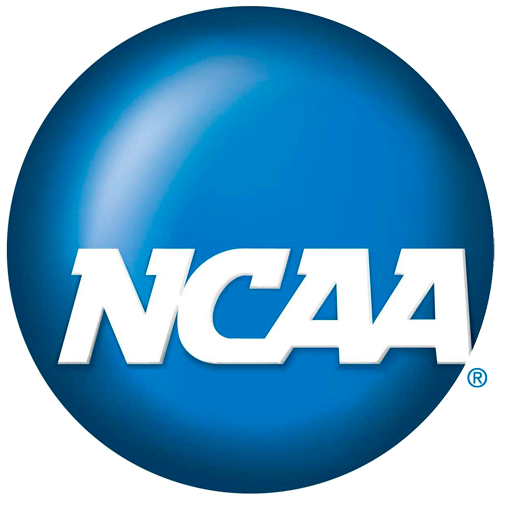 Unlike with March Madness, the Division I schools control NCAA football and those programs had enough in reserve to withstand lost revenue from limited fan attendance and cancelled games. Nevertheless, it was a hard hit to the schools and could be catastrophic if it continues into 2021.
Unlike with March Madness, the Division I schools control NCAA football and those programs had enough in reserve to withstand lost revenue from limited fan attendance and cancelled games. Nevertheless, it was a hard hit to the schools and could be catastrophic if it continues into 2021.
The universities are not the only ones hit hard by the cancellations. Sportsbooks also took a big hit. American Gaming Association reports estimated that in 2019 over 12 million bets worth $4.7 billion were wagered on the NCAA football and the amount on NCAA basketball exceeded that significantly. In fact, based on 2019 figures and the increasing amount of state sanctioned sportsbooks, the AGA suspects that up to $10 billion may have been wagered on March Madness in 2020. So, the cancellation of March Madness drastically hurt the revenues of sportsbooks, state coffers and of course, offshore sportsbooks who say March Madness makes up a large percentage of revenue each year.
NCAA basketball is currently taking place and there is a hope that with the vaccine rollout and proper precautions a March Madness tournament can take place in 2021, which will be a sigh of relief to all parties. If, however, the tournament is cancelled again in 2021, it's uncertain whether all athletics programs can survive it.
Check out the top 5 gambling stories in North America for 2020, including online gambling, sports betting and the Top Gambling story of 2020, here.
Read insights from Hartley Henderson every week here at OSGA and check out Hartley's RUMOR MILL!










